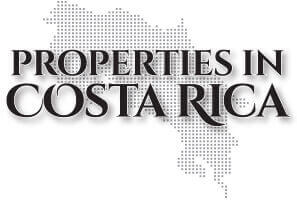Stock Market Eyes Small Firms
Search Your Property
By Peter Krupa |
Costa Rica's National Stock Exchange known as the Bolsa Nacional de Valores, or simply the Bolsa is small by anyone's standards. Only a dozen or so stocks are traded and their value represents a very small percentage of the companies that issue them. Daily trading sees just a few million dollars worth of stock change hands, usually from the same large companies electronics manufacturer Atlas Eléctrica, for example, or beverage behemoth Florida Ice and Farm. More than issuing shares to raise capital, Costa Rican companies tend to prefer bank debt and bonds, simpler and safer debt that doesn't give the purchaser partial ownership of a company or the right to profit from dividends the way shares do. Altogether, it's a rather sleepy market, just at the time when markets around the world are catching their first winds. But early next year, the Bolsa will launch a new program that looks to breathe life into the local investment market by opening a space for smaller companies to seek capital by issuing stock, while at the same time making it safer for investors to buy those stocks. Known as the Alternative Equity Market, or MAPA, the program is modeled in part on projects such as the London Stock Exchange's Alternative Investment Market. MAPA seeks to attract smaller businesses by smoothing out and simplifying some of the scarier disclosure and regulatory elements that come with issuing stock. The resulting model is a hybrid of a public and private company that could turn the heads of some small and medium business owners looking for ways to raise capital and grow their companies. We're trying to create a new culture here, a new environment where investment in shares is a natural thing, said Matthew Sullivan, a British citizen and one of the brains behind the program at the Bolsa. Costa Rica's business class doesn't have a strong tradition of equity investment, although it is done. Companies seeking to raise capital through stock must do a public offering, selling shares to whoever wants to buy them. With public offerings, the company gets the capital it needs to invest in expansion, and the shareholders get stock essentially ownership in the company that pays out dividends when the company makes money. But if a company wants to raise capital by offering public shares, it must comply with a whole range of government regulations, as well as disclose details about its inner workings for all the world including the competition to see. Those obstacles have historically made Costa Rican companies in this tiny economy skittish about going public. Bigger companies would rather just raise money by selling bonds. Smaller companies, meanwhile, often turn away from public markets altogether. We live in a capitalist country and people invest money, said Carlos Mora de la Orden, the owner of financial Web site Capitales.com. But, he said, small and medium companies typically turn to friends and family for capital. MAPA permits investments from people more than just family and friends, Mora de la Orden said. Companies that offer shares through MAPA would be only half public. Under the program, a company could allow a range of potential investors to offer to buy the shares, while retaining the right to sell shares to specifically selected investors. That, in turn, means the companies won't have to disclose all their financial details to the public at large. Instead MAPA will set up a Web site with information that only investors and approved potential investors can access sales, debt, earnings, all the important stuff. Sullivan says this password-protected system of online disclosure would be unique in the world. Another new element for the Costa Rican market that MAPA has cooked up is something called a sponsor. Every company that wants to offer shares through MAPA must have a sponsor basically, a Bolsa-approved finance professional (four have been certified so far). The sponsor's job is to guide the company through the process of the stock offering and later through the regulatory procedures. The MAPA program includes a few other unique changes, the details of which are laid out in a detailed 14-page document that can be downloaded in both English and Spanish versions from the Bolsa's Web site, www.bolsacr.com. While all this will be good for the companies seeking investment, it's also good for the investors. Oscar Chaves, the general manager of investment banking for Costa Rican finance company Aldesa, told The Tico Times that MAPA also provides greater security for would-be investors by eliminating the need for piles of independent contracts. It also regulates the relationship between small and medium companies and their investors, where before there was no regulation. Chaves said Aldesa is going through the steps right now to help a client enter the MAPA market, with Aldesa acting as sponsor. Sullivan confirmed that already at least one company is ready to enter MAPA and several more are preparing. It gives more protection to the investor that wasn't there before, Chaves said. Sullivan said there is no maximum or minimum size for the companies that can join MAPA, although Chaves offered that he expected it will attract companies in the $1 million to $5 million range, adding that sizes up to $20 million are likely as the market gains credibility.
|
